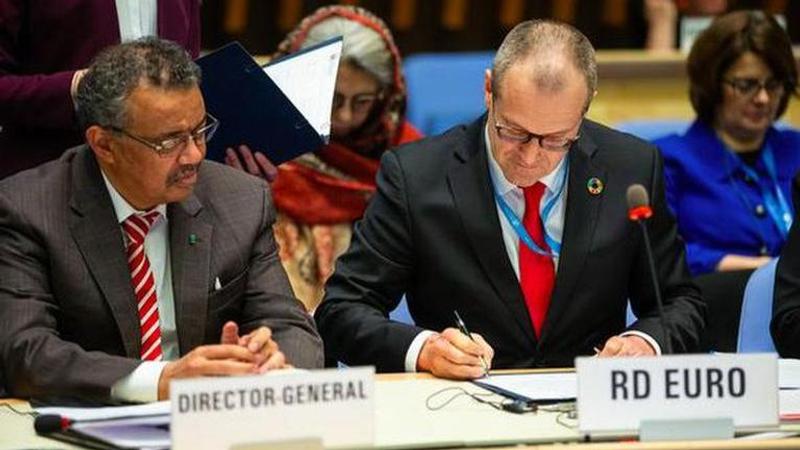Published 14:25 IST, June 26th 2020
WHO warns against 'very significant' COVID-19 resurgence in Europe
While globally, nearly 9 million confirmed COVID-19 cases and over 400,000 deaths have been reported to WHO, the pandemic continues to accelerate.

Healthcare systems could be pushed to the brink due to the “significant resurgence” of the coronavirus cases in Europe as the region continues to report close to 20,000 new cases and more than 700 new deaths per day, WHO Europe warned on June 25 in a press conference held at Copenhagen, Denmark. While globally, nearly 9 million confirmed COVID-19 cases and over 400,000 deaths have been reported to WHO, the pandemic continues to accelerate, with a record 183,020 new confirmed of coronavirus cases in 24 hours.
"For weeks I have spoken about the risk of a resurgence as countries adjust to measures. In several countries across Europe, this risk has now become a reality — 30 countries have seen increases in new cumulative cases of the past two weeks," Dr Hans Henri P. Kluge, WHO regional director for Europe, said in a statement.
According to WHO, at least 54 countries in the WHO's European region now account for more than 2.6 million of the cases of COVID-19 and 195,048 fatalities. “In 11 of the countries, accelerated transmissions have led to a very significant resurgence that if left unchecked will push health systems to the brink once again in Europe,” Dr. Hans Henri P. Kluge said.
Further, he acknowledged the efforts and responses led by Poland, Germany, Spain, and Israel as they responded quickly to cluster outbreaks of COVID-19 associated with schools, coal mines, and food production settings through rapid and targeted interventions. Speaking about the new normal, several Ministers of Health reported that citizens made safe health practices such as physical distancing and wearing facial masks a norm.
R-value increased from 0.88 to 2.88
However, concerned with the spike in cases in Europe, WHO reiterated that Germany's four-day infection rate, rate of transmission known as the R-value increased from 0.88 to 2.88 between June 18 and June 22, indicating a surge in infections. The rate of transmission spiked after some localized outbreaks at a meat processing plant were detected where more than 1,000 employees tested positive for SARS-CoV-2. Further, in Poland, at least 4,000 coal mine workers contracted the coronavirus in early June.
WHO Europe emphasized on contact tracing via the use of digital technology, saying, “Digital technology can play a leading role, not least to support contact tracing. Austria, Georgia, and North Macedonia are among the 27 countries that have released national solutions for digital contact tracing in Europe; with at least another 4 countries (Andorra, Finland, Ireland, Portugal) having solutions underway.”
(Image Credit: Twitter/ @WHO/Europe)
Updated 14:25 IST, June 26th 2020




